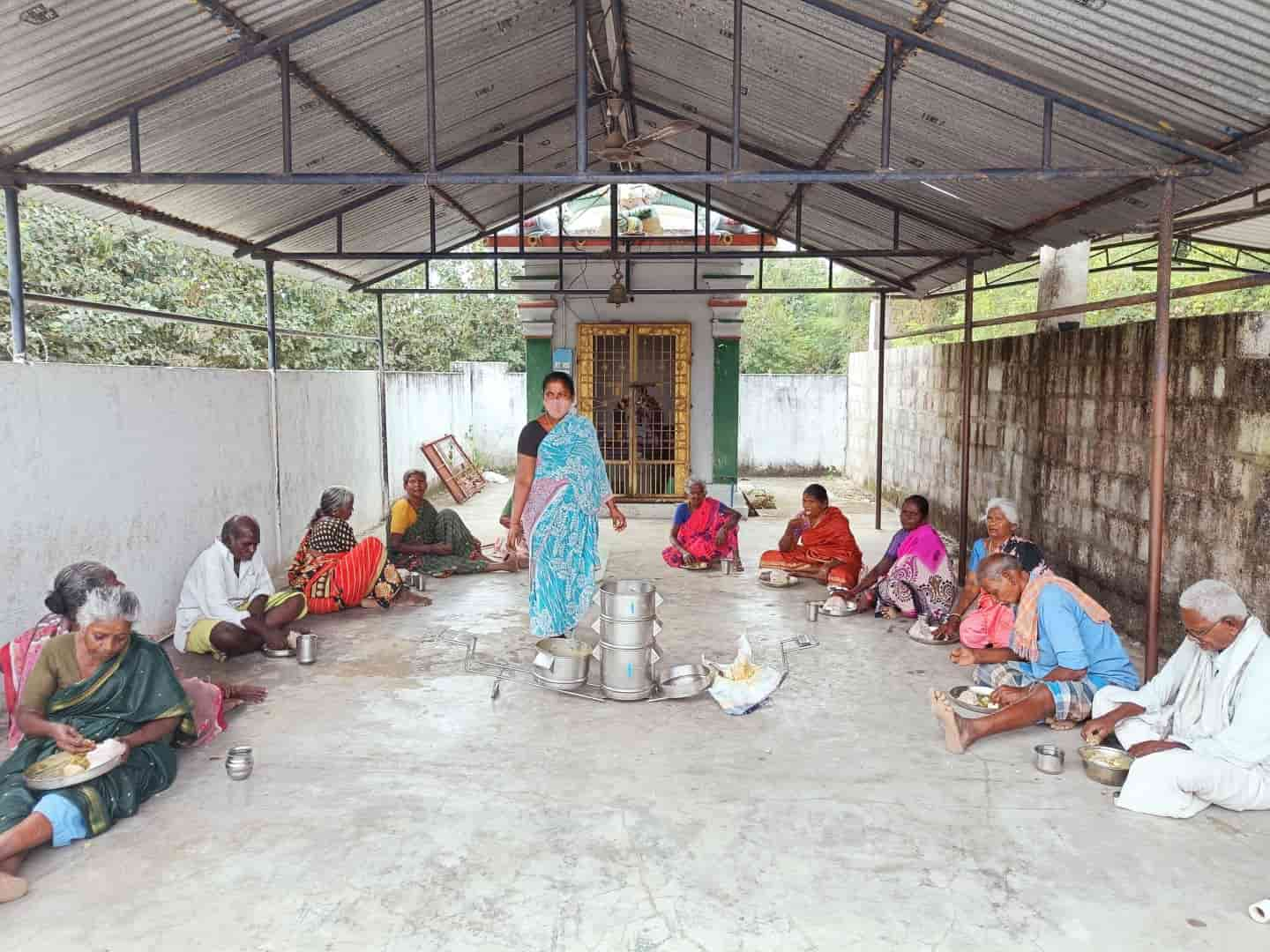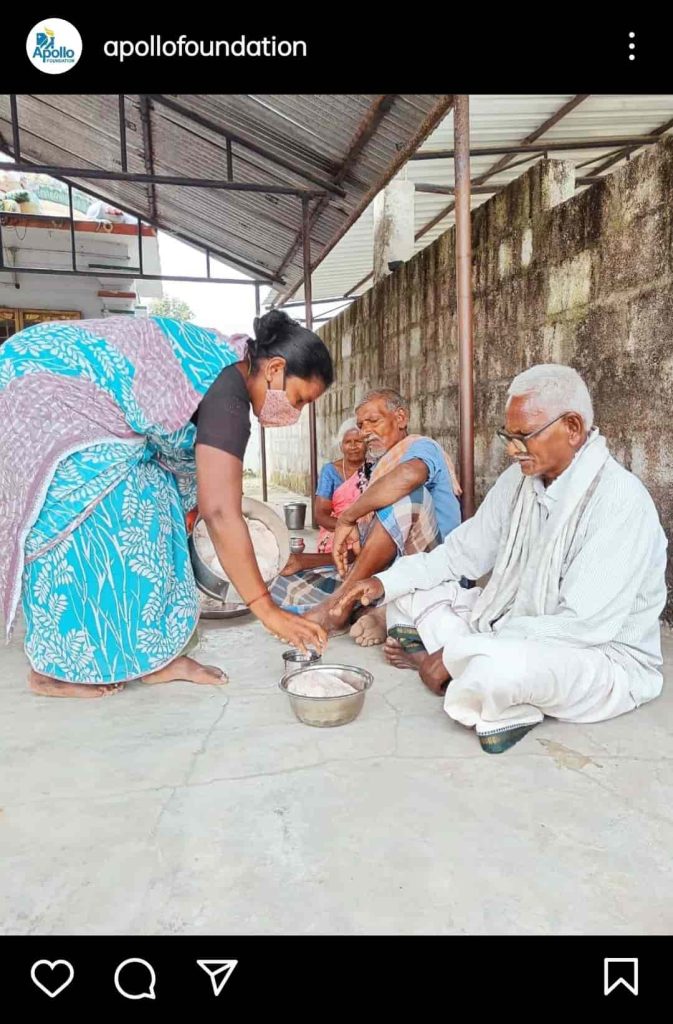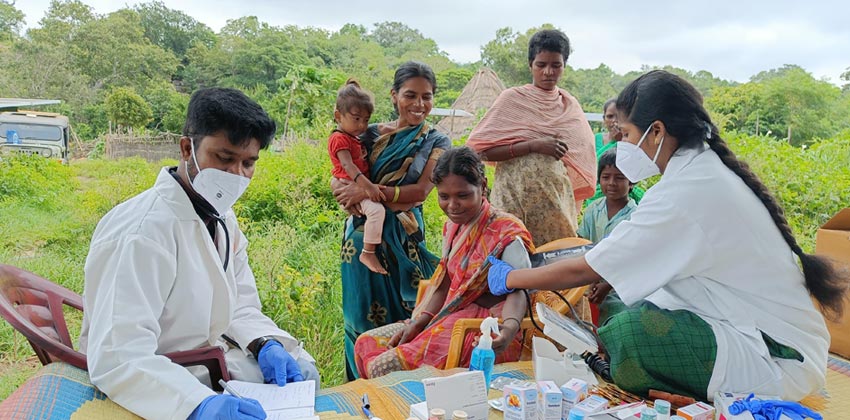A game of Daayam is afoot at Charala, a village in Andhra Pradesh, where the sun is rising steadily overhead. The cuboid metal dice fall with a rhythmic clink on the ground and pieces are moved on a Ludo-like board scribed into the light brown soil. The two seasoned players are passing time. Over the wall next to them, about 10 men and women have gathered in the temple premises. It’s noon, and lunch is ready to be served.
Charala is one of the villages along with Ponnedupalle and Uppoddupalle where Total Health provides midday meals to seniors. Since their inception in 2016, when Total Health responded to a cry for help when they heard that a few people had died from starvation, these Geriatric Nutrition Centers have provided over 19,000 meals. Today, 58 seniors have enrolled themselves for the lunch programme.
These lunches are often the only meals of their day that are guaranteed, explains Kanakamma, a boisterous woman in her 70s.
“At this age, we can’t go and find work to sustain ourselves. My back wouldn’t allow it.”
Kanakamma
Although she has a son, most others like Krishnamma and Yashodamma do not have a traditional family structure to rely on – both never had kids. “My husband is an alcoholic. He hardly ever comes home,” says Yashodamma. Krishnamma, whose husband passed away a decade ago says, “My husband’s family has abandoned me.”
The absence of family
With or without kids, the story repeats itself 20 times over in Uppoddupalle, where Total Health also serves people with disabilities, and in Ponnedupalle, where the midday meals see mainly women.
“A lot of the women here are widows. Most of us do have sons and daughters in law but they are hardly home throughout the day,” says Raziya Bi. “Though they may say they’ll come back at lunch time, you can’t always expect them to show up. You have to rely on yourself.”
The lack of familial support is starker when physical injuries, from a lifetime of manual labour, are compounded with age.
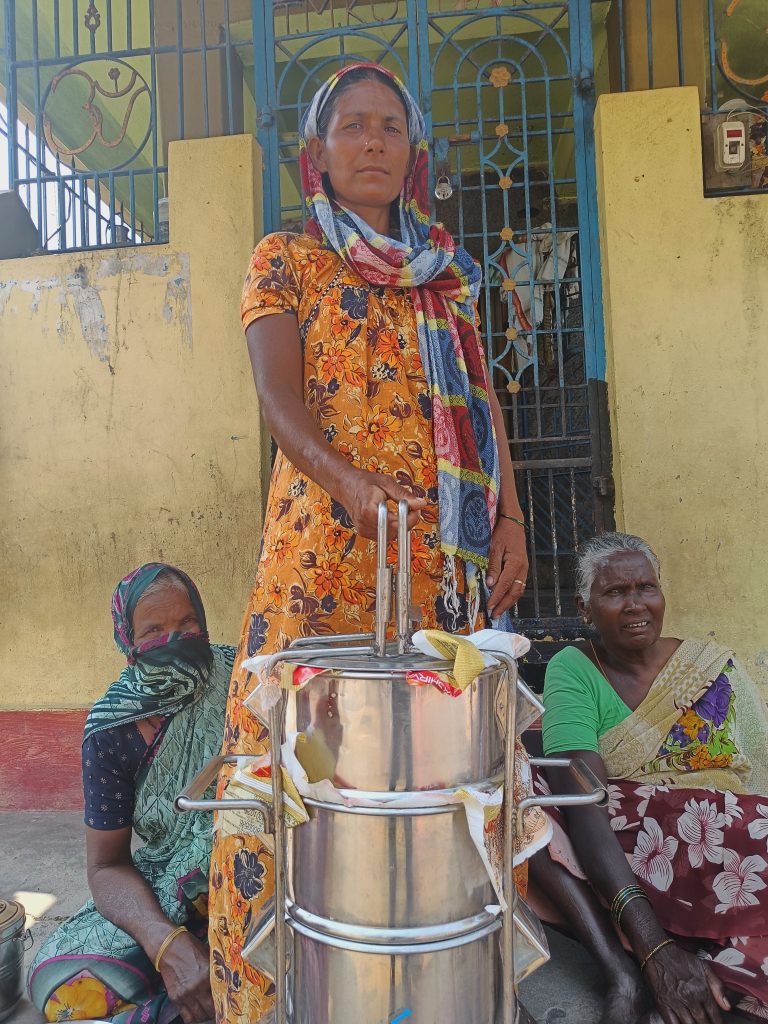
P Gangadhar, who lost his eyesight at work says, “I did odd jobs as a coolie at a tomato field. One day, while mixing chemicals for the pesticide, some splashed into my eyes and caused nerve damage.”
His wife Parvathi holds his hand as they gingerly navigate the wide stream of suds that flows from each hut, dividing the kucha road in two. The couple depends on the midday meals for nutrition. Like most families here, they can’t afford refrigerators (or the electricity it takes to run them) and storing food is not an option. So for dinner, they depend on the ‘ration rice’ (given under the Public Distribution Scheme).
Their neighbour Fazlun, who broke her lower back with a fall while collecting firewood, says her daughters visit her from time to time, supporting her and her husband financially.
It has made some of the women of Ponnedupalle reconsider sending daughters away to different villages after marriage. “Daughters still find it in themselves to come visit and help their parents out as much as possible, because of the love for their mothers,” says Shammu S, a 27-year-old cow herd.
Friends are family
A new kind of family, instead, is emerging at the Geriatric Nutrition Centres. One built from friendships over blood relations and helmed by a meals coordinator and server. At Charala, it is Jamunamma, ladling out ragi balls and aakukura.
Her experience as a cook, and a voluntary server at the panchayat school, made her take up this job with Total Health. “Before Total Health started providing meals, they would provide just the material and I would cook it for us. I especially like making aakukra khichdi and sweet pongal,” she says.
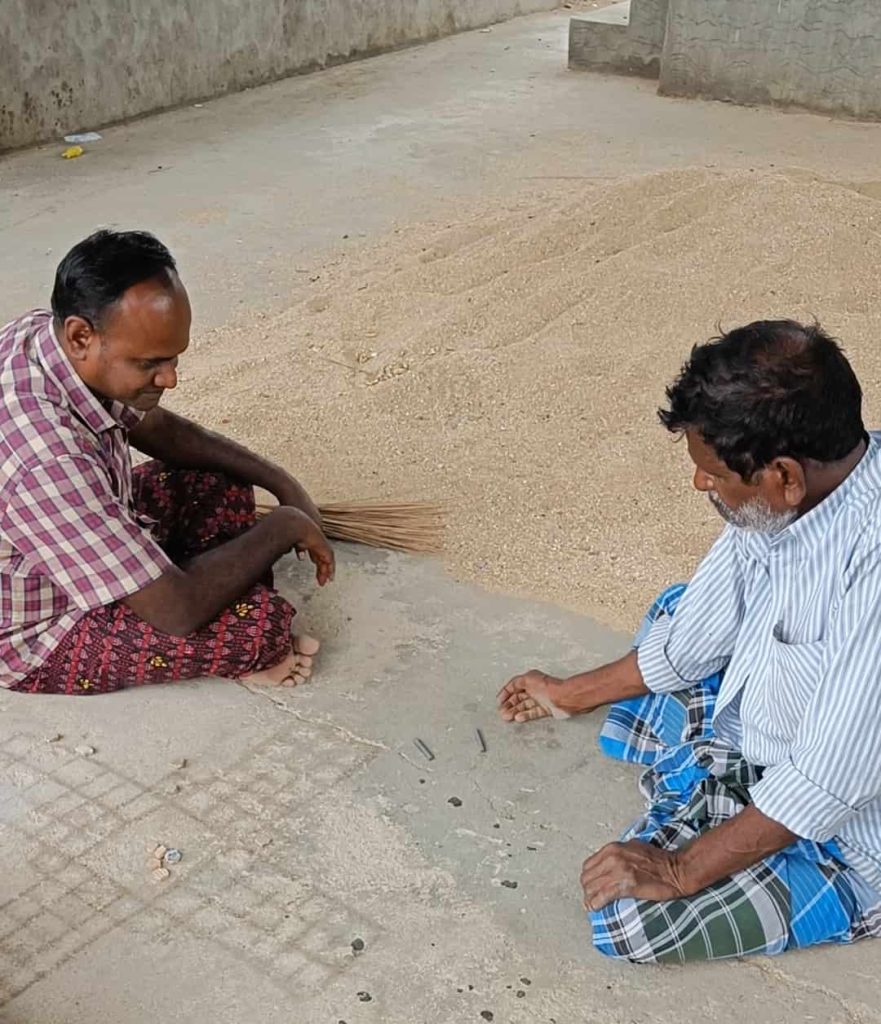
On Jamunamma’s call each day, aided by Kanakamma, the seniors of Charala meet at the village temple premises. Mealtimes also mean two hours of companionship in otherwise lonely lives.
“During the pandemic, we had to take our food to go, for our safety. But now, we are slowly returning to eating together like we used to,” says Krishnamma. “The part I’m most looking forward to is playing Daayam after a nice lunch in the afternoon.”
